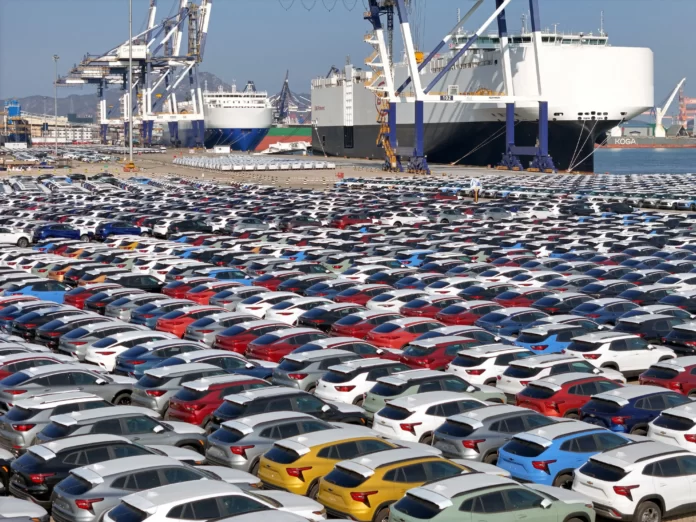A group representing General Motors, Ford, and Stellantis raised concerns Tuesday about a trade deal that would reduce tariffs on auto imports from Japan to 15 percent while keeping tariffs on vehicles from Canada and Mexico at 25 percent.
The American Automotive Policy Council, which represents the three automakers, said the deal could disadvantage U.S. industry and workers.
Matt Blunt, president of the council, said any agreement that charges a lower tariff for Japanese vehicles with little or no U.S. content than for North American-built vehicles with high U.S. content is a bad deal for American automakers and workers.
President Donald Trump has threatened to raise tariffs on vehicles from Mexico to 30 percent and from Canada to 35 percent starting August 1. The White House defended the Japan agreement, with spokesman Kush Desai calling it a major step forward in ending Japan’s trade barriers to U.S.-made cars.
The Detroit Three automakers are already facing financial strain from existing tariffs. General Motors said Tuesday that second-quarter earnings were reduced by $1.1 billion due to tariffs and warned of a larger impact in the third quarter.
Stellantis said Monday that it has faced 300 million euros, or $352 million, in tariff-related costs so far and has cut shipments and production to adjust to manufacturing levels. The company expects more impact in the second half of 2025.
In May, the auto council also criticized a trade deal with the United Kingdom, saying it would harm the U.S. auto sector. Under that deal, British carmakers are allowed to export up to 100,000 vehicles annually to the U.S. at a 10 percent tariff rate, close to the total Britain exported last year.
The council said the agreement would hurt American automakers, suppliers, and workers.
In April, Trump adjusted auto tariffs by easing duties on some parts and materials but kept the 25 percent tariff on imported vehicles. He also extended a duty-free exemption for North American parts that meet U.S.-Mexico-Canada trade agreement origin rules.




